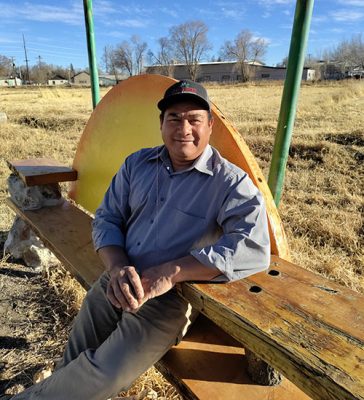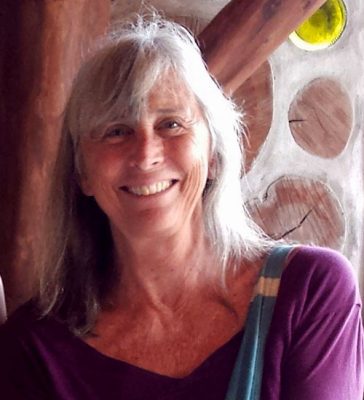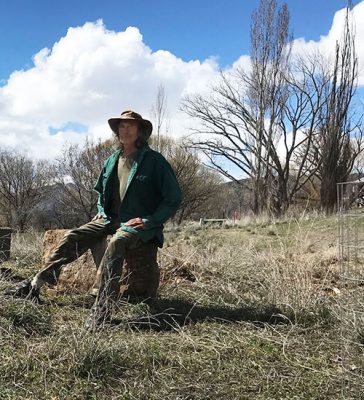Theme: Nourishing Our Bodies Through the Garden
Schedule of Events
- 9 am to 4 pm – Traditional seed swap ~ Visit vendors ~ Network with community
- 9:30 am – The Importance of Seed Collection (this talk will be in Spanish)
- by Jesús Flores of the Rio Grande Farm Park in Alamosa
- 10:30 am- Nutritional Aspects of Seed Saving
- by Lyn Howe from Paonia
- 11:30 am – Every Home a Homestead
- by Geoff Rauch from Paonia
- 12:30 pm – Seed Blessing
- – Led by Sherice, Lisa Bodey, Jesús Flores, Cari Conari
- 1 pm – Community Sharing Hour
- all are welcome to give an update on the their project, offerings or needs
- 2 pm – The San Luis Food Sovereignty Initiative: Deep Seeds and First Foods
- by Devon G. Peña, Ph.D. of the Acequia Institute in San Luis
- 3 pm – Panel Discussion
- Devon Peña, Ph.D. and Shirley Romero
Talk Descriptions & Speaker Bios

The Importance of Seed Collection ~ Jesús Flores
The seed is the most practical and efficient way to collect, transport, and store plant diversity. In his talk, Jesús will cover:- What is seed collection?
- What is the seed and its function?
- What are the seeds symbolic of?
- What is the function of seeds for plant survival?
- What is the importance of seeds in plants?
- What is the importance of seeds?
- How important is a seed bank?
Jesús is from Charcas, San Luis Potosí, Mexico and grew up in a family of farmers where his father began to teach him about the importance of farming at a very young age. By the age of 17, after attending school, managing a goat herd and helping to cultivate his family’s 60 acres and, Jesús began to obtain the best crops and best cattle in the region through his seed cultivation and selection methods. He received his Technical bachelor’s in Business Administration from the Center for Industrial and Service Technological in Charcas. From there, he went to work for a government program called the International Fund for Agricultural Development in the state of San Luis Potosí.
In 2001 he and his wife emigrated to the US and settled in Alamosa, Colorado. In 2017, Jesus began farming half an acre at the Rio Grande Farm Park. His results were so good that he harvested over 10,000 pounds of squash. Not having enough space for it all, he began donating part of his harvest to food banks in Alamosa and La Jara. Eventually a position for manager of the Rio Grande Farm Park arose, and Jesús applied, interviewed and got the job. He is passionate about agriculture and his motto has always been “agriculture is not a gift, it is a passion” and “where there is plenty of water, there is life.”
His primary objective is to produce as much organic food as possible because his dream is to see a healthy community without disease.

The San Luis Food Sovereignty Initiative: Deep Seeds and First Foods ~ Devon G. Peña, Ph.D.
The ‘Deep Seeds’ of the San Luis Food Sovereignty project are the native landrace varieties of concho corn, bolita bean, and calabazas that acequia farmers have stewarded for generations. The ‘First Foods’ are the heritage recipes and cuisine grounded in these crops which creates a community’s culinary and taste memories. The revival of traditional multi-crop acequia farming methods by our cooperative of “community farmers” will revive the planting of Deep Seeds and the nourishment of our bodies by First Foods, in an initiative based on the principle that the garden is our pharmacy and our food is our medicine.Dr. Peña is a biodynamic farmer, seed saver, plant breeder, and philanthropist. He is Founder and President of The Acequia Institute (TAI), a Colorado-based non-profit foundation dedicated to supporting the environmental and food justice movements. He manages the Institute’s 181-acre acequia farm in Viejo San Acacio under a conservation easement with Colorado Open Lands. Since 2006, TAI has provided more than $180,000 in direct-to-producer grants, scholarships, fellowships, and support for acequia and other traditional and Indigenous farmers and their children. In December 2021, TAI was awarded a $1.5 million grant from The Colorado Health Foundation for ia two-year “San Luis Food Sovereignty Initiative” which includes the restoration of the historic R&R Market (est. 1857) and its conversion into a community food cooperative, mutual aid center, and food sovereignty incubator.
Read more about Dr. Peña’s work at http://www.acequiainstitute.org

Nutritional Aspects of Seed Saving ~ Lyn Howe
Are some varieties less nutritious than others? How does soil preparation, fertility practices and timing of growing and harvesting crops affect Nutrition? We will explore the surprising answer to some of these questions and discuss ways you can apply this information to help select, grow and save seed with the best possible nutritional outcomes.Lyn Howe, (BS Biology University of Wisconsin, MS, PhD University of Minnesota) has a been an avid seed saver, farmer, gardener and artist for over 40 years. Since 2011 as director of the Hawaii Public Seed Initiative, (a program of The Kohala Center, Waimea, Hawaii), Lyn has directed seed education across the Hawaiian islands. Collaborating with University of Hawaii College of Tropical Agriculture extension agents, together they promoted the importance of growing and saving seeds adapted to low input eco-agricultural systems, selecting for varieties best adapted to thrive in diverse microclimates and to best withstand tropical diseases and pest pressures. Since 2015 Lyn worked to identify and train statewide seed growers to create the Hawaii Seed Growers Network and offer Hawaiiʻs small farmers and gardeners quality, locally adapted seed (available online at http://hawaiiseedgrowersnetwork.com ). This network has recently begun breeding new and unique adapted varieties. Lyn and her husband Geoff lived and farmed organically on Hawaii Island for 15 years, since 2018 they reside in Paonia, Co.

Every Home a Homestead
~ Geoff Rauch
Geoff and partner Lyn have created 3 unique and joyful homesteads since the mid 1990″s. They strive for quality food abundance, creative expression, visual beauty and inclusion of all of nature’s endless players. This presentation will share their approach to the somewhat endless varieties of homesteading – from one dedicated container in a window to a full time passion (your choice!). Growing and sharing your own food is a gift of oneness and a much needed model of local stewardship. Beware, your particular version of homesteading can be BIG FUN and quite contagious – warn your neighbors!
Geoff is a gardener, activist, farmer and homesteader.
Panel Discussion – Shirley Romero Otero
Shirley has been an educator for 30 years. She is the founder and president of the Land Rights Council, Executive Director of the The Move Mountains Youth Project, Inc, Board member of the Acequia Institute and Director of the San Luis Food Bank.
